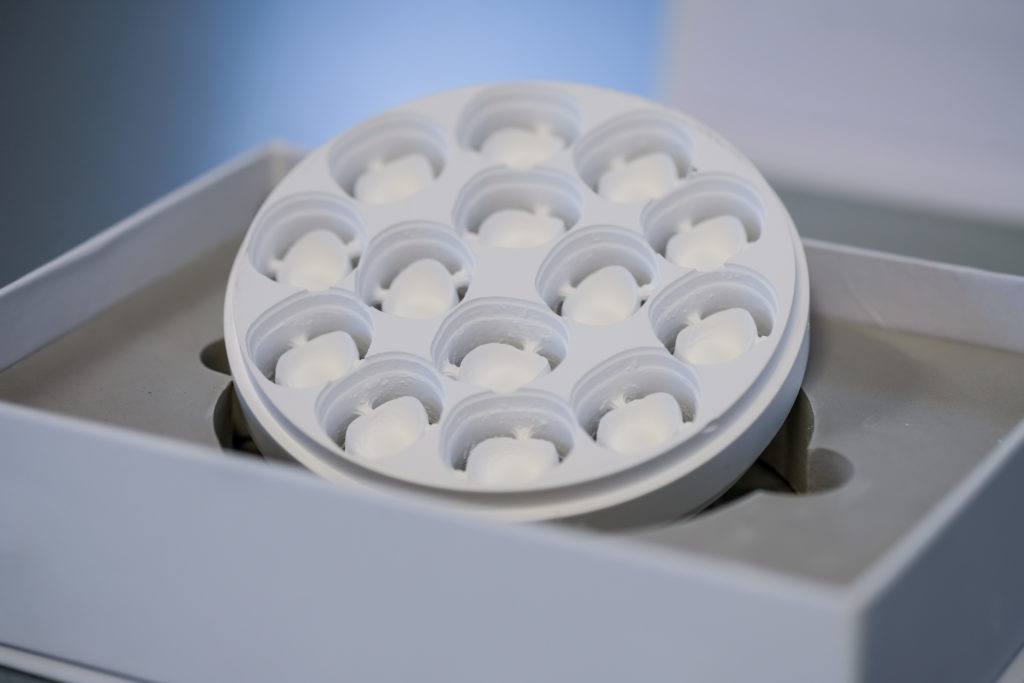

Why is my Zirconia chipping?
November 05 2018

Two Main Reasons for Zirconia Chipping
Zirconia discs are manufactured to mill easily, maintain low tool costs and enable a reasonable mill time to provide a favourable ROI for crown fabrication. That said, it is not necessarily a perfect product for milling as milling does come with a few problems. Chipping is likely the most common problem which occurs when milling zirconia. Interestingly, there isn’t a lot of reasons why it happens. Many labs do encounter this from time to time while others find it to be a daily occurrence. Here are the main two culprits of chipping problems and the resolution to each of these problems.
- Incorrect margin line offset settings:
When designing a zirconia restoration it is critical that the margins are milled at 0.2 μm (200 microns). In order to reduce the cost of tools, the discs are pre-sintered. Milling this soft disc with thinner margins than 200 micron margins will result in an increased likelihood of chipping. One may get some units to mill thinner but the predictability is not there. Running an efficient milling operation is most effective when chipping is reduced to the bare minimum. This reduces both machine time, and wasted zirconia. In both 3Shape and Exocad there are settings to automate this design feature so all restorations designed will have or maintain minimum thickness.
- Worn milling tools:
All milling tools have a life expectancy. Once dulled, all tools will cause zirconia chipping. When purchasing an appropriate tool, one of the most fundamental considerations for most is cost. With evaluating cost, it’s best to base the decision on “tool cost per unit.” Less costly tools may actually cost more in the long run due to a shorter lifespan. Prima’s tools save on average up to 40% per restoration than market leaders.
Lastly, unless you have software that tracks tool usage life, longer life tools will reduce chipping as you will have dull tools less often and thus less chipping.
Anymore questions or would you like to discover more about the longevity of our tools? Contact us directly at [email protected]
Back to news



